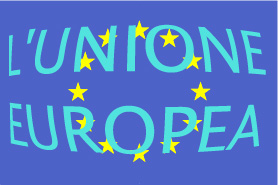Rimani aggiornato:
Iscriviti alla newsletter
Jean Monnet Chair
The European Communities and Migration: an Historical Perspectives
Francesca Fauri
- Learning outcomes
- Course contents
- Readings/Bibliography
- Teaching methods
- Assessment methods
- Teaching tools
- Language of instruction
Learning outcomes
The course explains the different components of Europe's economic development and the main social and economic changes affecting the continent since the industrial revolution. The goal is twofold: stimulate each student's autonomous learning and intellectual curiosity concerning the course's topics and improve his/her overall capacity to evaluate historical events. Moreover, the course will provide students with extensive knowledge about the European economic integration process.
Course contents
Academic year 2012-2013
Part One
- The reasons behind European primacy: why the industrial revolution began in England, how it spread, the basic features of the new international economy.
- The growth of world economic interdependence since the industrial revolution. Monetary and financial issues (1875-1914).
- European and international trade in the 19th century: from free trade to protectionism. International capital and labour movements.
- The spread of industrialization and the catching-up process. Big business and the United States take off. The economic development process in Japan and Italy.
- The economic impact of World War I. The 1929 crisis and its consequences in Italy and Europe.
Part Two
- European reconstruction and the Marshall Plan. European trade liberalization and economic “miracles”.
- European integration attempts from 1947 to 1957. The role of Italy.
- Bretton Woods and the gold exchange standard. European monetary integration history.
- The Treaty of Maastricht and the European Central Bank.
- The Common Agricultural Policy; the European budget; the EU anti-trust provisions. The industrial districts and their role in European development.
- The evolution of regional policy and the enlargement challenge.
- Today's global crisis and its effects on Europe.
Readings/Bibliography
REQUIRED READINGS:
ZAMAGNI Vera, Dalla rivoluzione industriale all'integrazione europea, Il Mulino, 2000.
FAURI Francesca, L'integrazione economica europea 1947-2006, Il Mulino, 2006
Plus one of the following:
FOREMAN-PACK James, Storia dell'economia internazionale dal 1850 ad oggi, Il Mulino, 1999, chapt.: III; V-XI (English version available)
FAURI, Francesca L'integrazione prematura: le relazioni economiche europee dalla metà del XIX secolo alla Grande Guerra, CLUEB, 2005.
Additional readings:
DE GRAUWE Paul, Economia dell'unione monetaria, Il Mulino, 2010 (English version available).
A list of additional readings will be hand out on the first day of classTeaching methods
Each lesson will focus on a specific issue; students will be asked to participate and contribute to the discussion.
Assessment methods
There are two specific course requirements: regular attendance; two written exams at the end of Part I and II of the course. Evaluation criteria will be based on student's capacity for discussion and personal elaboration of the exam questions. Students may improve their written grade with an optional, additional oral exam. Each written exam is composed of 6 open questions to be answered in two hours and to be taken at set days and time. The course programme is the same for all students.
[P]olicy
- [L]
Note legali - [T]ermini
d'uso - [C]ontatti
- [A]ccesskey -
Statistiche (riservate)
Copyright 2002 Punto Europa - Progettista -
mail: info@puntoeuropa.it
PuntoEuropa .it è sviluppato seguendo i più recenti
standard del W3 e nel rispetto dell'accessibilità
[Dettagli
su strategie e validazioni]






